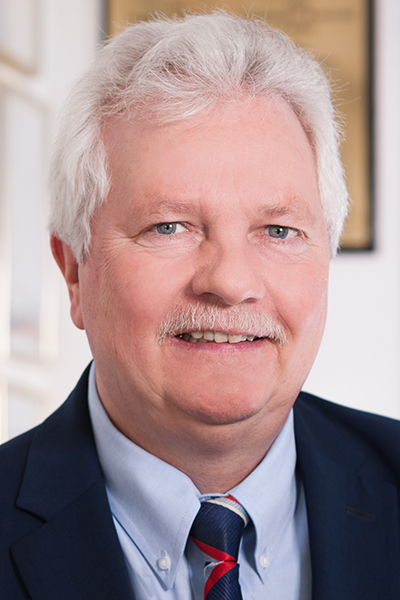
Biologics have transformed the treatment of rheumatologic diseases. Many patients have seen biologics turn their crippling rheumatoid arthritis, psoriasis, lupus, and other familiar disorders into manageable chronic conditions with occasional flares. But the path from research to treatment is neither swift nor direct.
“The disturbed immune system in rheumatic diseases was terra incognita when we injected our first anti-CD4 monoclonal antibodies into a human patient to try to treat desperate cases of rheumatoid arthritis,” said Gerd Burmester, MD, professor of medicine and director of rheumatology and clinical Immunology at Charité – Universitätsmedizin Berlin. “When we analyzed the first blood sample from our first patient under the microscope, all the cells were dead. I was truly scared.”
Dr. Burmester will explore the back story of biologic agents during the Phillip Hench, MD Memorial Lecture: Biologics in Rheumatology: Revolution & Perspectives. The first airing, complete with a live question-and-answer period, will take place from 10 – 11 a.m. EST Saturday, Nov. 7, and registered attendees can watch a replay on demand through March 11, 2021.
A quick check of procedures revealed that a technician had accidentally prepared the sample using the wrong buffer. A second sample showed healthy cells with a decrease of targeted cells. Later work showed that CD4 was not the ideal target.
“TNF was the most effective target, followed in time by IL-6, B cells, and finally costimulatory molecules such as CD28,” Dr. Burmester said. “But we didn’t know those other, more useful targets at the time. All we knew was that HIV targeted CD4 cells, and there were cases of HIV and rheumatoid arthritis where the rheumatic disease improved. The RA patients we treated had failed all other available treatments. They were desperate, and so were we.”
Those first human trials of monoclonal antibodies may seem like ancient history, Dr. Burmester continued, but they serve as a reminder of the sometimes-dizzying pace of research and development. Methotrexate was first approved for RA in 1988, barely three decades ago.
Serendipity played a role in the development of many biologics, and sometimes sheer determination. Adalimumab, perhaps the best-selling pharmacologic agent in history, was nearly abandoned as researchers reported a worrying number of clinical trial patients in Germany developing tuberculosis.
“From clinical trials, we knew that the agent was hugely effective, but the company was afraid to continue because of the tuberculosis,” Dr. Burmester said. “We had to persuade the company, to argue very strongly, to continue development.”
The problem was previously unrecognized high levels of latent TB in the post-World War II generation in Germany. Simply screening patients for latent TB and adding preventative therapy as needed largely eliminated the problem.
Biologics have been so successful that patients, clinicians, and researchers take them for granted.
JAK inhibitors and other oral agents are clearly more convenient for patients, but biologics remain unrivaled in other areas.
Biologic agents tend to have a long half-life. Some can be administered once every three months, sometimes less frequently. Biologics are highly specific, targeting a single antigen. Oral agents may be selective, but none are as selective as biologics. And biologics are less likely to interact with other drugs than many oral agents.
“Biologics fill many treatment gaps in rheumatologic disease,” Dr. Burmester said. “They are still more effective than small molecules at the recommended doses in many conditions, and some have virtually no side effects. Biologics will remain important treatments for our patients and for us.”


